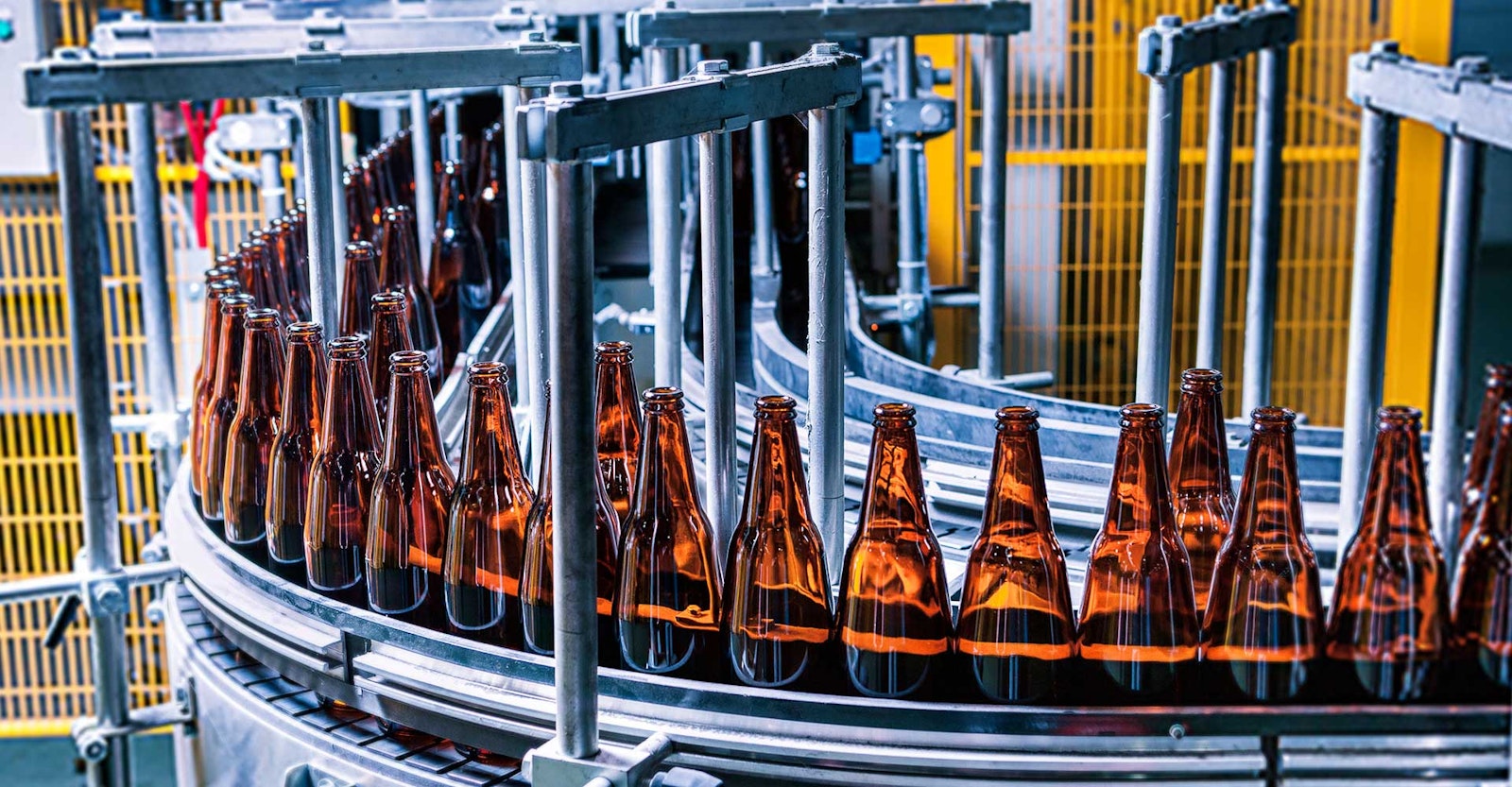SPONSORED CONTENT
Food contamination from various sources is the leading cause of recalls in the United States. Using food-grade lubricants correctly is one way to help mitigate the risk of food contamination.
Food-grade lubricants differ from conventional lubricants in that they are made with base stocks and additives that are safe to use in food and beverage production. The brewing industry has many applications where a food-grade lubricant is recommended. For example, conveyors used for canning and bottling typically have rollers that require grease fittings, and they can also have gear drives that require gear lubricants. Also, working surfaces frequently get a cleaning then a coating with food-grade mineral oil, to help prevent rust. NSF 3H white mineral oils, safe for direct contact with food within defined limits, are recommended for this application. Blowers, often used to move grain to silos, are another application where use of a food-grade lubricant should be considered.
There are different classifications of food-grade lubricants based on the type of food contact expected. By using quality, NSF-registered lubricants, breweries are meeting or exceeding standards for food safety. Applications where direct contact with food or beverages is expected, such as oil coatings or release agents, should use NSF 3H lubricants. In applications where under normal operation there is no contact, but there is a potential for contact with food or beverages, NSF H1 lubricants should be used. NSF H1 lubricants are designed to lubricate machines where contact with food may occur.
Gearboxes attached to chain drives and air compressors used during the malting process are examples of possible lubricant exposure. A gearbox may develop a leak and create the risk of contact, and compressors may carry oil in compressed air.
Quality food-grade lubricants, such as Clarion Food Grade Lubricants, are essential in a brewing facility for equipment maintenance, food safety, and to keep production moving at an optimal pace. The use of NSF 3H and H1 lubricants are beneficial to both brewery and consumer. Using quality food-grade lubricants within breweries provides peace of mind.
Talk to one of our technical experts today at https://clarioncontact.com/
SPONSORED CONTENT



